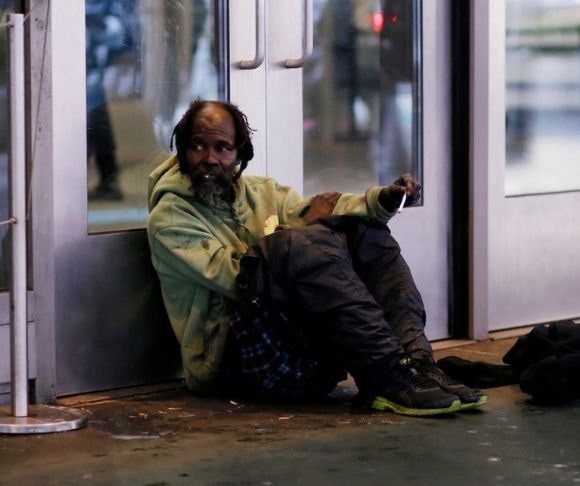Convenience store chain 7-Eleven has discovered that homeless people don’t like opera and classical music blaring in their ears as they beg for money, do drugs, or harass the locals. The practice launched in Canada and then San Francisco and several beach locales in Florida followed suit. Now, it’s a mainstream solution for business owners struggling to cope in certain neighborhoods. The immediate problem is that a whole lot of customers who buy Twinkies, lottery tickets, and slushies don’t much like that style of music either. Therein lies the rub.
“Studies have shown that the classical music is annoying. Opera is annoying, and I’m assuming they are correct because it’s working,” said franchise owner Jagat Patel of Austin, TX. Patel has had several complaints about the volume but noted that no police have shown up to tell him to turn it down.
More Annoying: Homeless or Vivaldi?
 Never underestimate the ingenuity of the capitalist mind: Exploiting a disdain for some music genres, 7-Elevens across the country are practicing this effective dispersal of the homeless – especially in Texas, where people tend to handle their problems without much permission from any government agency. So leave it to the Lone Star folks to use the aggressive and tinny tones of some pieces – like a scherzo from Schubert – to drive the unwashed masses to, say, a local Circle K store playing Barry Manilow’s greatest hits.
Never underestimate the ingenuity of the capitalist mind: Exploiting a disdain for some music genres, 7-Elevens across the country are practicing this effective dispersal of the homeless – especially in Texas, where people tend to handle their problems without much permission from any government agency. So leave it to the Lone Star folks to use the aggressive and tinny tones of some pieces – like a scherzo from Schubert – to drive the unwashed masses to, say, a local Circle K store playing Barry Manilow’s greatest hits.
None of this is new, A variety of businesses has employed this tactic since the 1980s. Back then, it was used as a sort of DDT-free mosquito spray by many cities dealing with vagrants and vandals. In 1985, a 7-Eleven franchisee in Canada went to great lengths to deal with a burgeoning loitering and drug problem, brainstorming with psychologists about innovative approaches to get rid of the pesky irritants. It was so successful that a book was written, Music in American Crime Prevention and Punishment, by musicologist Lily E. Hirsch, visiting scholar at California State University, Bakersfield. She quoted a store employee who said, “The thinking was this kind of music is not popular with teens and may discourage them from ‘hanging out’ at the store.”
Neurologists have long touted the benefits of music on the brain. When hearing a pleasant sound, dopamine is released, and mood is enhanced. Everyone knows this. The opposite is also true: Classical music is not everyone’s cup of tea, and when exposed to it, a lot of people avoid souring their pleasure centers by skedaddling. Genius.
However, regular customers are also put off by the speakers blaring the more piercing classical compositions and tend to avoid the areas employing this non-violent deterrent. But is this aural assault actually worse than listening to John Williams’ soundtrack of the movie Jaws?
One of Patel’s neighbors, Frederick Carter, wants the noise abated and told the local Fox affiliate, “I believe, just talk to them, and ask them not to hang around, or not to live around, whatever, I think that’s the best solution.” He continued: “This music is not very good, it’s loud, it’s obnoxious to me, I don’t like it, you can hear it a long ways off, it’s very disturbing.” Which, some would argue, is the whole point.
It Works

(Photo by Leonardo Munoz/VIEWpress)
In one well-known case study, the British Transport Police decided to pump Mozart and Pavarotti onto station platforms like sensory napalm and, in six months, cut vandalism by 37%, robberies by 33%, and assaults by an amazing 25%. With numbers so positive and progressive without additional police presence and complaints inundating local precincts, why wouldn’t the shock and awe of opera be a better solution?
As one California 7-Eleven operator, Sukhi Sandhu, explained to the local paper, The Modesto Bee, it’s the only thing that has worked. “Once the music started, the riffraff left,” customer Manuel Souza told The Bee. “It’s hard to hang out and gossip and joke around.”
The concept works – but it does not address the roots of the homeless problem.
The unsheltered population has been underserved and unsupervised for decades. Every state in the nation has its share of unchecked mental illness that is often accompanied by violence. New York City has struggled with brutal attacks in the subway system and finally cried “uncle,” reinstating a decades-old policy of institutionalizing anyone the police or health workers think might pose a danger to themselves or others. On the opposite extreme, San Francisco created a human feces-removal job with a handy app to report the latest deposit on the city’s streets.
Simply blasting Enrico Caruso’s arias or Bach’s Cello Suite No. 2 is only a temporary solution. This population deserves more than a dousing of unpleasant decibels.




